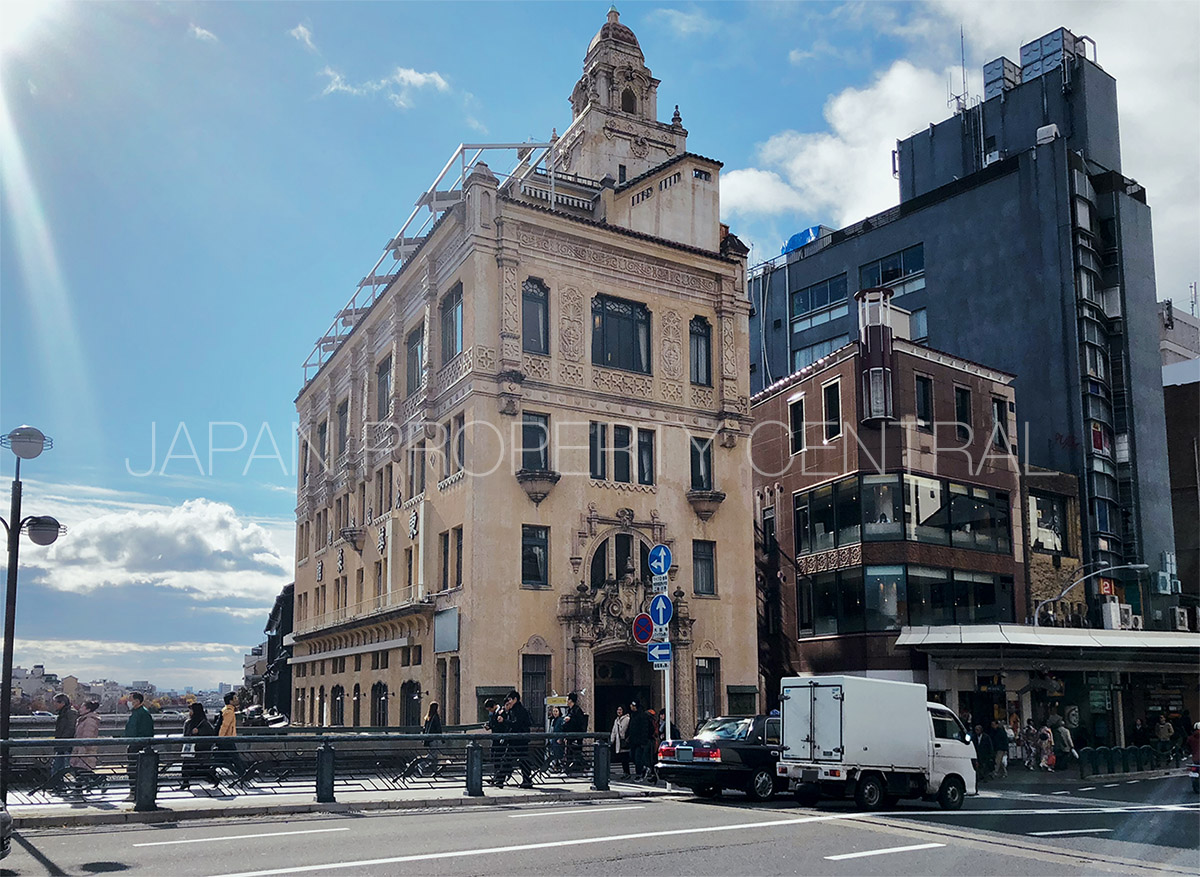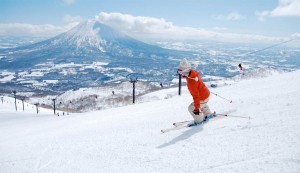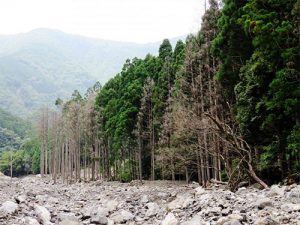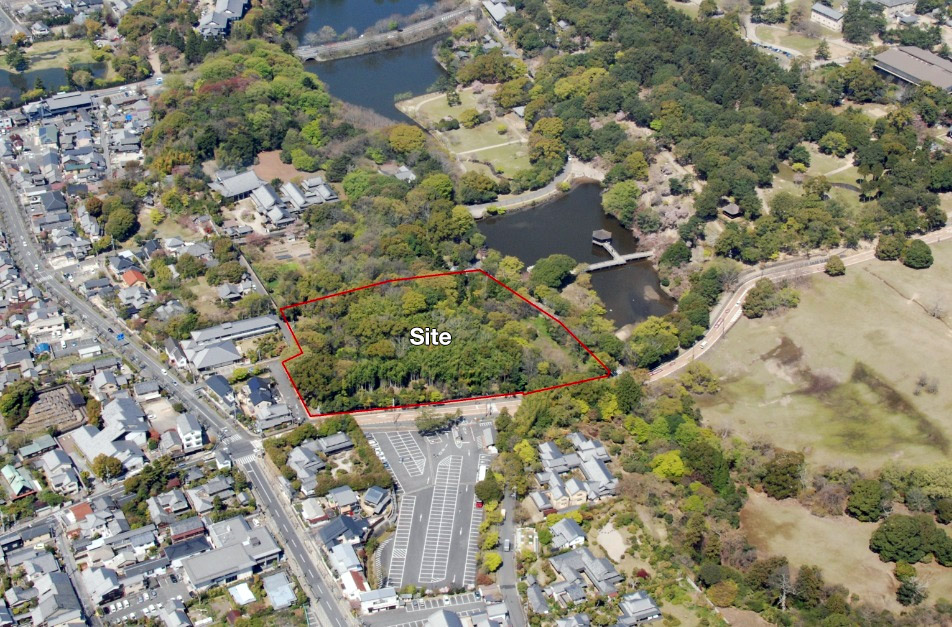Rosenka land values increase nationwide for 3rd year in a row

This year, Japan’s nationwide rosenka land values increased for the third year in a row with an annual rate of growth of 0.7%. The rate of growth has increased from 2017 which saw 0.4% and 2016 with 0.2%.
The Tokyo metropolitan area saw a 4.0% increase, up from a 3.2% increase seen in 2017. Kyoto Prefecture saw a 2.2% increase and Osaka saw a 1.4% increase. A total of 18 prefectures saw an overall increase in land values in 2018, up from 13 prefectures in 2017. Total real estate transactions by listed companies in 2017 reached 5 trillion Yen (approx. 45 billion USD), up 20% from 2016 and the third highest annual volume in history.Read more
Japan land prices increase in 91% of locations - highest share in history
 According to the quarterly LOOK report issued by the Ministry of Land, Infrastructure, Transport and Tourism (MLIT) in the first quarter of 2018, land prices have increased in 91% of the surveyed locations. This is the first time the percentage has exceeded 90% in the history of reporting.
According to the quarterly LOOK report issued by the Ministry of Land, Infrastructure, Transport and Tourism (MLIT) in the first quarter of 2018, land prices have increased in 91% of the surveyed locations. This is the first time the percentage has exceeded 90% in the history of reporting.
The main factors behind the rising land prices include positive conditions for the office market in central Tokyo, Osaka and Nagoya, major redevelopment projects, surging tourism numbers and expenditure, and strong demand for apartments that are close to transport. These factors are also encouraging investment into the office, retail, hotel and residential sector.Read more
Commercial land prices in Japan’s regional areas increase for first time in 26 years

On March 27, the Ministry of Land, Infrastructure, Transport and Tourism (MLIT) released the Chika-Koji assessed land prices for 2018. According to the data, nationwide land prices across all uses increased by 0.7%, a 0.3 point improvement from 2017 and the third year in a row to record a year-on-year increase.Commercial land prices increased for the third year in a row with a 1.9% increase in 2018. Residential land prices increased by 0.3% in 2018. In 2017, residential land prices increased by 0.022%, showing the first increase in 9 years.
Notably, commercial land prices in Japan’s regional areas increased by 0.5% - the first increase since 1992. Residential land prices in regional areas dropped by 0.1%, although the rate of decline has reduced.
The most expensive land in Japan is the site of the Yamano Music Building in Ginza, Tokyo. The land had an assessed value of 55,500,000 Yen/sqm (approx. 48,800 USD/sq.ft) in 2018, up 9.9% from 2017 and the fifth year in a row to record an increase. This land has increased in value by 275% since 2002.Read more
Thai developer makes 30% on Niseko land sale
 Thai-based property company Pace Development has sold a 14 hectare block of land in Hokkaido’s Niseko area for 2.05 billion Yen (approx. 18.8 million USD). The buyer was Richforest International Investments Ltd.
Thai-based property company Pace Development has sold a 14 hectare block of land in Hokkaido’s Niseko area for 2.05 billion Yen (approx. 18.8 million USD). The buyer was Richforest International Investments Ltd.
Pace had previously acquired the land in 2016 for approximately 1.56 billion Yen, resulting in a 30% gain over the past 18 months.Read more
The owners of 20% of Japan’s land are unaccounted for
 According to the Ministry of Land, Infrastructure, Transport and Tourism (MLIT), approximately 41,000 square kilometers, or 20% of privately-owned land in Japan is owned by unidentifiable or missing owners.
According to the Ministry of Land, Infrastructure, Transport and Tourism (MLIT), approximately 41,000 square kilometers, or 20% of privately-owned land in Japan is owned by unidentifiable or missing owners.
A missing owner is defined as someone who has either passed away without the property title being transferred to the heirs, or an owner who has since moved but has not updated their address details on the property title. Generally speaking, there is no legal obligation to update a change of address or inheritance on property titles.
Of the land, 14% is building land, 18.5% is farmland, and 25.7% is forestry. The MLIT reported that 19.8%, or 930,000 hectares, of Japan’s agricultural land has property titles that have not been updated in over 50 years. Some local governments have found property titles showing the owner’s address as Manchukuo - a short-lived pre-war puppet state located in northeastern China.Read more
Luxury hotel planned for historic site in Nara Park

Nara Prefecture is accepting bids from private companies for a hotel development to be located within the Nara Park grounds in Nara City. The 1.3 hectare site is located on the southern side of Nara Park’s Ukimi-do Hall, and was purchased by the prefecture from the national government in 2005.
Prior to the Meiji Restoration, the property was home to one of Kofuku-ji’s sub-temples. In 1890 it was sold to Nara poet Haruyasu Umeda (1850-1917). From 1911, it became the holiday villa of Kenshiro Yamaguchi (1886-1957), a wealthy banker and president of the Kansai Trust Bank (the predecessor of the Toyo Trust Bank, which is now part of the Mitsubishi UFJ Trust and Banking Corporation). After WWII, the annex of the Nara Family Court was built on the land. The land is currently vacant although traces of the original Japanese garden remain.Read more
Buying land: Understanding the differences between registered and actual land size
If you are buying land or a house and land in Japan, it is essential to understand how land sizes are measured and represented on contract documents.
Measured size vs. registered size
Each parcel of land has a size that is registered on the land title. This size is decided by the Legal Affairs Bureau and may vary from the actual size of the land for various reasons, primarily due to outdated survey methods used in the past.
It is possible for the seller to hire a surveyor to measure the actual size of the land. However, many may choose not to due to the cost involved.
Quite often the surveyed size will be different to the registered size, although there is no general rule as to how much they differ. A property owner may apply to update the land register to show the true size of the land, but permission from adjoining landowners will be required since their land registers must also be updated. This can be extremely difficult, as neighbours would not consent if it would result in their registered land size being reduced. Many do not bother to go through with this process.Read more
